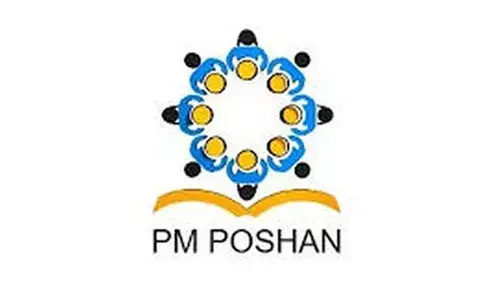Educating students about menstrual hygiene

Educating students about menstrual hygiene and spreading awareness are vital steps in promoting health, dignity, and equality. Comprehensive menstrual education empowers students with the knowledge and confidence to manage their menstrual health effectively. It challenges societal taboos, fosters emotional well-being, and promotes gender equality. By creating an open and supportive environment for discussing menstruation, we can ensure that all students are equipped to thrive physically and emotionally, paving the way for a healthier and more inclusive society
Educating students about menstrual hygiene and spreading awareness are crucial steps in promoting health, dignity, and equality. Menstruation is a natural biological process, yet it remains shrouded in stigma and misinformation. By addressing this topic openly and accurately in educational settings, we can dismantle the taboos and myths that surround it, empowering students with the knowledge they need for their physical and emotional well-being.
One of the primary benefits of educating students about menstrual hygiene is the promotion of health. Proper menstrual hygiene practices are essential for preventing infections and ensuring overall reproductive health. Students need to understand the importance of using clean menstrual products, changing them regularly, and maintaining good hygiene during their periods. This education can help reduce the incidence of urinary tract infections, bacterial vaginosis, and other health issues related to poor menstrual hygiene.
Furthermore, menstrual education can help students make informed choices about the products they use. There are various menstrual products available, such as pads, tampons, menstrual cups, and period underwear. Each has its advantages and considerations, and students should be equipped with the knowledge to select the best option for their needs and lifestyles. This also includes information on the environmental impact of disposable products and the benefits of reusable options, fostering a sense of responsibility and sustainability.
Spreading awareness about menstruation is equally important in challenging societal taboos and fostering a supportive environment. Menstruation is often a source of shame and embarrassment, leading to secrecy and a lack of open discussion. This silence can exacerbate feelings of isolation and negatively impact mental health. By normalizing conversations about menstruation, we can create an inclusive environment where students feel comfortable seeking help and sharing their experiences.
Educational programs should also address the emotional and psychological aspects of menstruation. Adolescents may experience a range of emotions related to their periods, from anxiety and confusion to relief and pride. Providing a safe space for students to express their feelings and ask questions is crucial for their emotional well-being. This support can help build self-esteem and confidence, enabling students to navigate their menstrual cycles with resilience and self-assurance.
Moreover, educating boys and young men about menstruation is essential for fostering gender equality and mutual respect. By including all students in menstrual education, we can combat stereotypes and promote empathy and understanding. Boys who are knowledgeable about menstruation are more likely to be supportive peers and future partners, contributing to a culture of respect and equality.
Educating students about menstrual hygiene and spreading awareness are vital steps in promoting health, dignity, and equality. Comprehensive menstrual education empowers students with the knowledge and confidence to manage their menstrual health effectively. It challenges societal taboos, fosters emotional well-being, and promotes gender equality. By creating an open and supportive environment for discussing menstruation, we can ensure that all students are equipped to thrive physically and emotionally, paving the way for a healthier and more inclusive society.








